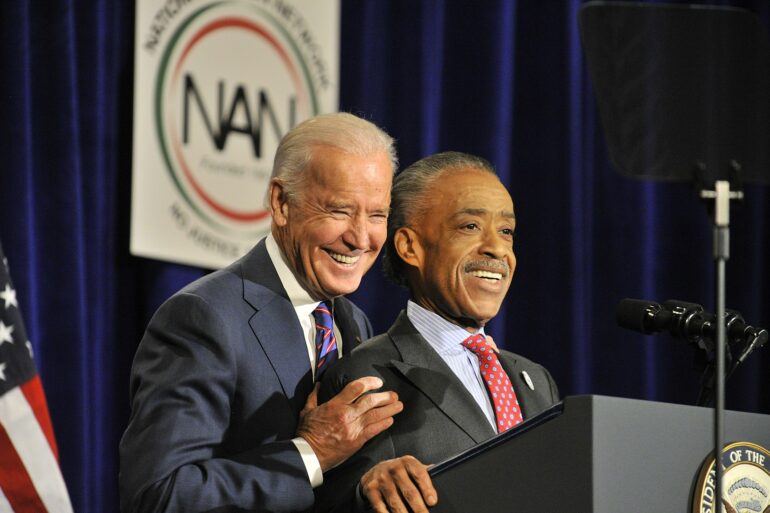Joe Biden wants retirement planners to be able to funnel your savings into his leftwing pet causes. CNN wrote, “President Joe Biden issued the first veto of his presidency Monday on a resolution to overturn a retirement investment rule that allows managers of retirement funds to consider the impact of climate change and other environmental, social and governance factors when picking investments.
Republican lawmakers led the push to pass the resolution through Congress, arguing the rule is “woke” policy that pushes a liberal agenda on Americans and will hurt retirees’ bottom lines, while Democrats say it’s not about ideology and will help investors.
The resolution, which would rescind a Department of Labor rule, passed both chambers of Congress with Democratic Sens. Joe Manchin of West Virginia and Jon Tester of Montana voting with Republicans in the Senate.”
The New York Post previously explained what Biden’s rule meant for those saving for retirement: “If you put money into a 401(k), beware. Until now, the law always required fund managers entrusted with your savings to invest the money where it’s expected to get the top profit for you. Period. But late last month, Biden’s Labor Department announced a rule change that goes into effect at the end of January. It will allow fund managers to invest your money in the stocks of companies that favor left-wing policies, even if they earn a lower return.
It’s legalized theft. The future earnings on your retirement nest egg are being sacrificed to advance a woke agenda.
A lower return means you’ll have to work more years before retiring or start putting more into your 401(k) — or settle for a lesser standard of living in the final years of your life.
Biden’s rule paves the way for your 401(k) savings to be put into what are called ESG funds….What is ESG? E stands for environment, S for social justice and G for governance, meaning who gets hired or put on the company board. ESG funds generally invest in companies that oppose fossil fuels, support unionization and stress gender and racial diversity over merit.”
The president obviously doesn’t see it that way.
“I just signed this veto because the legislation passed by the Congress would put at risk the retirement savings of individuals across the country,” Biden said in a video posted on his Twitter account. “They couldn’t take into consideration investments that would be impacted by climate, impacted by overpaying executives and that’s why I decided to veto it.”
Conservative critics called out the president for his bogus framing of the issue.
Not all Democrats supported Biden’s veto, etiher. “President Biden is facing scrutiny from one moderate Democrat in the Senate after he decided to reject bipartisan legislation to prevent his administration from enforcing a rule about using environmental, social and corporate governance (ESG) investments for retirement accounts.
Shortly after Biden issued the first veto of his presidency on Monday, Sen. Joe Manchin, D-W.Va., took aim at him for his decision, accusing the president of prioritizing a “radical policy agenda” over the economic desires of Americans.
“This Administration continues to prioritize their radical policy agenda over the economic, energy and national security needs of our country, and it is absolutely infuriating,” Manchin, who has not declared whether he will seek re-election in 2024,” according to Fox News.
New Conservative Post noted that “ESG companies tend to do worse than companies that focus on profits while also failing to do any better on their stated goals of helping the environment, promoting diversity, or fighting for “social justice.” The Harvard Business Review explained this earlier in the year, “To begin with, ESG funds certainly perform poorly in financial terms. In a recent Journal of Finance paper, University of Chicago researchers analyzed the Morningstar sustainability ratings of more than 20,000 mutual funds representing over $8 trillion of investor savings. Although the highest rated funds in terms of sustainability certainly attracted more capital than the lowest rated funds, none of the high sustainability funds outperformed any of the lowest rated funds.
That result might be expected, and it is possible that investors would be happy to sacrifice financial returns in exchange for better ESG performance. Unfortunately ESG funds don’t seem to deliver better ESG performance either.
Researchers at Columbia University and London School of Economics compared the ESG record of U.S. companies in 147 ESG fund portfolios and that of U.S. companies in 2,428 non-ESG portfolios. They found that the companies in the ESG portfolios had worse compliance record for both labor and environmental rules. They also found that companies added to ESG portfolios did not subsequently improve compliance with labor or environmental regulations.
This is not an isolated finding. A recent European Corporate Governance Institute paper compared the ESG scores of companies invested in by 684 U.S. institutional investors that signed the United Nation’s Principles of Responsible Investment (PRI) and 6,481 institutional investors that did not sign the PRI during 2013–2017. They did not detect any improvement in the ESG scores of companies held by PRI signatory funds subsequent to their signing . Furthermore, the financial returns were lower and the risk higher for the PRI signatories.”
Congress could still override the president’s veto to protect retirees, but early reports indicate that Democrats in both chambers would block the attempt.
[Read More: Judge Rules Against Major Vaccine Maker]



